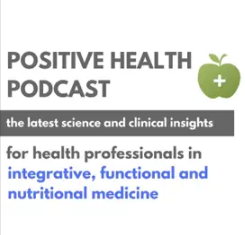
Perimenopause
March 18, 2025
Baby Colic – Natural Solutions for Colic Relief
March 28, 2025Boost Your Brain Power

We all know that the food we eat can affect our bodies. But, what about the greater impact food can have on the brain? Food can directly affect everything in our bodies from our mood and energy levels to our memory. “Brain fog” is a common term used to describe people who experience symptoms of confusion, forgetfulness, lack of focus and mental clarity. Reassuringly paying more attention to the foods you are eating as sources of optimal fuel for your body and brain can help nourish the brain cells and protect against early signs of aging. This can not only to help prevent the progression of Alzheimer’s and dementia but also to slow the decline for those who already have it.
When to worry
So, what are the signs that there is something to worry about? The following are all indications that your forgetfulness may have strayed beyond what we consider a normal part of the ageing process. This is especially true if any of these signs have started to happen a lot:
- Repeatedly asking the same questions
- Forgetting common words when speaking
- Mixing words up – saying ‘bed’ instead of ‘table’, for example
- Taking longer to complete familiar tasks, such as following a recipe
- Putting items in inappropriate places, such as putting a wallet in the fridge
- Getting lost while walking or driving around a familiar neighbourhood
- Undergoing sudden changes in mood or behaviour for no apparent reason
- Becoming less able to follow directions
Increasing forgetfulness alongside changes in your ability to concentrate and pay attention, and a slowing down of the speed with which you can process information may be signs of mild cognitive impairment – but this shouldn’t normally interfere with your life or prevent you from carrying out usual activities. Mild cognitive impairment can sometimes progress to Alzheimer’s or dementia, but not always. You can develop mild cognitive impairment without your memory loss progressing and without developing the whole spectrum of symptoms associated with dementia.
Lifestyle
Your lifestyle choices greatly affect your risk of developing dementia or Alzheimer’s. Studies show that people with the healthiest habits in mid-life have a lower risk of dementia later on, especially if they do three or more of the following: take regular exercise, avoid smoking, drink only in moderation, and maintain a healthy weight and diet.
Diet
In order to provide adequate nutrients for optimal brain health the Mediterranean diet is clearly a good one to follow, but researchers investigating the MIND diet (which is the Mediterranean-DASH Intervention for Neurodegenerative Delay) found that if people adhered to it strictly the nutritional benefits could reduce the risk of Alzheimer’s by 53%.
Importance of sleep
Too little sleep increases your risk for Alzheimer’s because beta-amyloid protein is cleared away during sleep when your cerebrospinal fluid washes out toxins from your body. The best sleep position for this to happen is on your side.
Omega 3
The omega 3 fats and particularly DHA, found in food like oily fish can prevent amyloid plaque formation and aggregation, improve cerebral blood flow and reduce inflammation, making them important in the fight against not only Alzheimer’s but also vascular dementia, they can also help to prevent abnormal blood clotting and they help lower blood pressure.
B Vitamins
Certain nutrients and in particular the B vitamins ‘can slow the atrophy of specific brain regions that are a key component of the Alzheimer’s disease process and that are associated with cognitive decline’. Those people taking specific levels of B vitamins had 90% less brain shrinkage compared to those taking a placebo
Combining supplements
Taking a programme of supplements that gives you specific combinations of nutrients is often more effective than taking a few individual nutrients, because nutrients work not only individually, but synergistically with each other. In effect, a combined supplement programme is greater than the sum of its parts. Talk to us about what supplement combination may suit you.
Vitamin D
Get safe sun exposure and know your vitamin D level. If you are moderately deficient in vitamin D, you have a 53-per-cent increased risk of dementia, and your risk increases by 125 per cent if you are severely deficient.
Probiotics
Your brain and gut are very much connected and good bacteria have direct effects on your memory, mood and cognition. Scientists talk about the brain–gut axis; and they even call the gut the ‘second brain’, because it is filled with the same neurotransmitters as your brain. Both probiotics and prebiotics (they promote the growth of the probiotics) have anti-inflammatory effects, which we know is important in the treatment of both vascular dementia and Alzheimer’s.
Heavy Metals
Aluminium and Mercury are both classed as neurotoxins and thought to pose an increased risk of developing Alzheimer’s. The saying ‘mad as a hatter’ refers to the traditional practice of polishing top hats with mercury – which could lead to mercury poisoning! We may not wear top hats so much anymore, but you will still find mercury in some dental amalgams and some fish, which is why it is best to choose small wild fish like sardines, mackerel and herring, avoid tuna and swordfish.
Brain Training
It is worth doing all you can to keep your brain active and healthy. Taking part in leisure activities such as reading, dancing, and playing board games and musical instruments has been shown to reduce the risk of dementia. So the more activities you do, and the more often you do them, the greater the benefits. Doing crosswords has been found to particularly beneficial in delaying memory decline – by 2.5 years.
This article was originally written by Nutritionist Sorcha Molloy for Galway Now. Sorcha operates Positive Nutrition Galway and offers online appointments servicing Limerick, Clare, Galway Mayo and Sligo.


